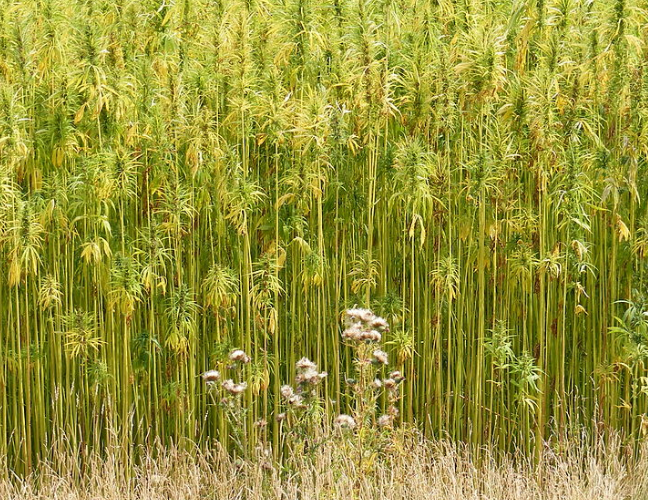A senior Republican lawmaker is pushing a new plan to regulate consumable hemp products, setting up a clash inside the party over how far to go on banning intoxicating cannabinoids. The proposal, still in draft form, would carve out a legal pathway for hemp-derived items while imposing tighter rules.
Griffith Steps Into the Hemp Debate
Rep. Morgan Griffith of Virginia, a longtime figure in House energy and commerce debates, is circulating draft legislation that takes a different route than many of his GOP colleagues. Instead of banning hemp-derived THC products outright, Griffith’s plan would permit sales—so long as buyers are over 21.
It covers the whole range: edibles, drinks, even inhalable products. The bill doesn’t ignore restrictions, though. Early summaries point to rules around packaging, labelling, and marketing—especially with an eye on keeping products away from children.
Griffith hasn’t gone public with the final draft yet. But his team is actively sharing summaries with stakeholders, testing whether there’s room for compromise in a divided Congress.

THC Ban Gains Steam in the House
At the same time, several Republican lawmakers are pressing for a much tougher approach. They want to cut off hemp-derived THC entirely, pointing to concerns about unregulated intoxicating products ending up in schools and corner shops.
The push is gathering momentum. Pro-ban lawmakers argue the 2018 Farm Bill, which legalized hemp, unintentionally opened the door to delta-8 and other THC isomers. In their eyes, the result is a quasi-legal cannabis market that never got congressional approval.
One staffer, speaking to Bloomberg reporters off the record, said bluntly: “The loophole is bigger than the law. We need to shut it.”
That’s a stark contrast with Griffith’s proposal, which takes more of a regulatory than prohibitionist stance.
Hemp Industry Caught in the Middle
The hemp industry is watching closely—and nervously. Companies selling hemp seltzers, gummies and vapes have grown rapidly in the last five years. But the market is patchy, regulated in some states and virtually free-for-all in others.
For producers, Griffith’s draft looks like a lifeline. It doesn’t erase their businesses, but it does set new hurdles. Packaging restrictions, THC potency caps, and age verification rules are all part of the early text.
Industry groups are already weighing in. The Hemp Beverage Alliance, which obtained a copy of the summary, is now gathering feedback from members. Their position isn’t final yet, but one member described the draft as “something we can work with.”
Meanwhile, trade associations representing hemp farmers have warned that an outright ban could devastate rural economies.
What the Draft Would Do
The draft bill, while not final, sketches out a regulatory framework. According to the Hemp Beverage Alliance summary:
-
Sales limited to adults aged 21 and over.
-
Strict labelling and health warning requirements.
-
Packaging rules to prevent products resembling candy.
-
Age verification required for online purchases.
That’s a significant shift from the current patchwork system, where state laws range from permissive to restrictive.
States Already Testing Models
Several states have moved ahead on their own, creating a mixed picture of how hemp-derived products are handled. Virginia, Griffith’s home state, recently passed rules limiting THC content per serving. Minnesota, on the other hand, has allowed a regulated THC beverage market, which has taken off in bars and breweries.
Here’s a quick snapshot of different state approaches:
| State | Policy on Hemp-Derived THC | Notes |
|---|---|---|
| Minnesota | Legal, regulated market | THC drinks sold in bars and shops |
| Virginia | Strict potency limits | Caps per serving and per package |
| Texas | Legal but contested | Ongoing lawsuits challenging bans |
| New York | Restricted | Only licensed dispensaries allowed |
| Colorado | Mixed regulations | Some local bans, state caps |
For Congress, these state experiments could provide a roadmap—or a warning—about what works.
A Divided GOP Strategy
The tension reflects deeper divisions within the Republican caucus. Some lawmakers want a hard line against anything remotely tied to cannabis. Others see the hemp market as an opportunity for farmers and entrepreneurs in their districts.
Griffith, whose district includes rural areas with ties to agriculture, is pitching regulation as a middle path. But the question remains: will prohibitionists accept half measures, or push for a sweeping ban?
One Republican strategist put it this way: “This is about whether the GOP wants to look like it’s cracking down on drugs or supporting business. Right now, they’re trying to do both.”
What’s Next for the Bill
The draft is still just that—a draft. Griffith hasn’t formally introduced the legislation, and the feedback process could reshape its final form. Stakeholders say the next step is determining whether House leadership will even consider it as part of broader Farm Bill negotiations.
If leadership backs the ban, Griffith’s proposal might stall before it gets off the ground. But if lawmakers want a compromise that keeps the hemp industry afloat while addressing safety concerns, the bill could gain traction.
For now, hemp producers, cannabis reform advocates, and prohibitionists are all reading between the lines. The stakes are high, and the fight over hemp’s future in Washington is just beginning.




